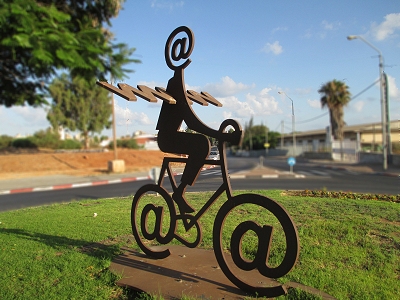
|
The world of non-commercial film and A-V |
Events Diary | Search | ||
| The Film and Video Institute | | ||||
BEYOND THE WEBSITE ...
|
|||
To promote your club, a website is not enoughPeople don’t just get information sitting at home perusing websites … it is actively sent to them in many other ways. And they do this on the move - using mobiles, smart phones, tablets, laptops and the like.If
you are not there, you are missing out.
So contacting potential and current members via Emails and Texts, Facebook and Twitter should all be part of your strategy. “Isn’t all that stuff just for kids?” Not any more, according to our research. Each has its own advantages and some IAC Clubs are already using them successfully. |
Email Group - members sharing informationBristol Film & Video Society use the free Yahoo Groups service for round-robin emails to members who opt in. They introduced it as part of a recruitment drive, offering it as an additional 'benefit of membership’. Officers send reminders of meetings and competition deadlines. Individuals circulate their views, for-sale adverts and news. Here are their views:
|
||
Direct email from you (the club) to members:The familiar email format can keep people up to date with what is happening both immediately (next week’s meeting) and in the longer term (e.g. competitions).Finchley Filmmakers, for example, collect (with permission), email addresses from members and casual visitors. They then send weekly mailings about the latest programme. |
|||
Do's and Don'tsDo not share club email addresses with other members accidentally. If you put all their addresses in the To: line you accidentally share them with everyone on the list.Do use "BCC" The simplest way to send an email to many people is to put a publicly known address in the TO line - such as our-club@gmail.com Then add the other addresses to the BCC line. (You may have to click an arrow to display the BCC line.)
most email programs allow you to gather several addresses into a group. You can then send an email to the group. Each recipient sees only their own address at the top. To find out more about how to send out emails to a group we suggest you search in Google with the phrase "how to send emails to a group xxx" where xxx is the name of the email system you usually use. Because Spam (unwanted advertising) is such a problem there are many attempts to block it. Small email groups to club members are unlikely to trigger such defences. |
|||
If your club is to stay visible in the modern world, travel online beyond the website! |
|||
Share your passions.

Share your stories.
